Wrongful termination happens when an employee is terminated illegally or unfairly. This can include being fired without cause, being fired for a discriminatory reason, or being fired in retaliation for whistle-blowing or participating in protected activities.
If you have been wrongfully terminated in Canada, you may be entitled to severance pay, reinstatement, or damages. Employees need to understand their rights in Canada to protect themselves from wrongful termination. Continue reading to learn more.
What Are Different Types of Dismissals?
When an employee is terminated from their position, it is rather important to understand the different types of dismissals in order to determine the appropriate course of action. The three main types of layoffs are termination as a disciplinary action, due to economic considerations, and due to discontinuance of a function.
Termination as a disciplinary action is usually given when an employee has committed some sort of misconduct. Meanwhile, those types of dismissal due to economic considerations and discontinuance of a function may be due to the need to downsize and make budget cuts by offering fewer services.
What Qualifies as a Wrongful Dismissal?
There are three main types of wrongful termination in Canada: termination without cause, termination for cause, and termination due to discrimination. Termination without cause occurs when an employer ends an employee’s contract without just cause. This can happen if an employer is downsizing or restructuring their business.
Meanwhile, termination for cause occurs when an employer ends an employee’s contract for a specific reason, such as poor performance or misconduct. Termination due to discrimination occurs when an employer ends an employee’s contract because of their race, religion, gender, or other protected characteristic.
What Qualifies as a Constructive Dismissal?
Another considerable type of wrongful termination is constructive dismissal, which is a type of wrongful termination that occurs when an employer makes a significant shift to an employee’s contract that is so detrimental to the employee that it amounts to dismissal. This can include a change in job duties, a pay cut, or a change in work hours.
Who Must Be Protected against Wrongful Dismissal?
In Canada, all employees must be protected against wrongful dismissal and have support from the country’s Labour Program. To be more specific, an employee may not be terminated due to a violation of public policy or discrimination. In addition, an employee may not be dismissed if they have an employment contract that states when and why they may be removed.
Who Will Deal with the Wrongful Dismissal Complaint?
The Canadian Labour Program will work with the Canadian Human Rights Commission to investigate and deal with complaints of discrimination and wrongful dismissal. If you believe that you have been or become the victim of wrongful dismissal, you can file a complaint and get a person assigned to your case. Seek the assistance of an attorney to get your case together.
Conclusion
In conclusion, it is quite important to understand that wrongful termination is a serious issue in Canada. There are also strict time limits in place for taking action, so it is important to act quickly and get legal advice as soon as possible.
Seeking a wrongful termination lawyer in Abbotsford? Pathfinder Law offers a range of different legal services, including civil litigation, employment law, and business law services, to clients living and working throughout British Columbia. Contact us today for more information.


